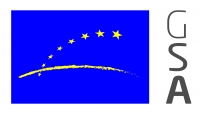The GSA’s mission is to support European Union objectives and achieve the highest return on European GNSS investment, in terms of benefits to users and economic growth and competitiveness, by:
- Designing and enabling services that fully respond to user needs, while continuously improving the European GNSS services and Infrastructure;
- Managing the provision of quality services that ensure user satisfaction in the most cost-efficient manner;
- Engaging market stakeholders to develop innovative and effective applications, value-added services and user technology that promote the achievement of full European GNSS adoption;
- Ensuring that European GNSS services and operations are thoroughly secure, safe and accessible.
Vision
Satellite navigation has made major inroads in many realms of society, impacting in increasingly profound ways on business, public services and consumer behavior. Along with delivering economic benefits to innovative service providers and related businesses, satellite navigation devices, now integrated within a wide variety of vehicles and transport systems, have changed how we manage the mobility, safety and security of people and goods in fundamental ways.
For users in the general public, the next logical development will be the integration of accurate positioning devices into every mobile telephone or similar handheld device, making possible a deep transformation of the way society deals with the dimensions of time and space.
By developing a new generation of Global Navigation Satellite Systems (GNSS), Europe is laying the foundations for new high-technology industry development, job creation and economic growth. With Europe in the driving seat, independent and self-sustaining, GALILEO has the potential to become a key part of the global navigation positioning system of the future.
Values
Our values serve as a compass for our actions and how we behave in the world.
Quality: what we do, we do well.
Integrity: honesty and transparency in all activities.
Service: commitment to customer needs.
Excellence: focus on competence and continual improvement.
Teamwork: we work as one to get things done.
Respect: for people and the environment.
Gender Equality: equal opportunities for all.
History
The European GNSS Supervisory Authority (GSA) was initially established as a Community Agency on 12 July 2004, by Council Regulation (EC) 1321/2004, status amended in 2006 by Council Regulation (EC) No 1942/2006.
The European Council took this important step because of what it saw as the strategic nature of European satellite positioning and navigation programmes, which include both EGNOS and GALILEO, and the need to ensure that essential public interests in this field are adequately defended and represented.
With Regulation (EU) No. 912/2010, which entered into force on 9 November 2010, and subsequently amended by Regulation (EU) No. 512/2014 of 16 April 2014, the GSA was restructured into an agency of the European Union called the European GNSS Agency, ensuring the continuity of its activities.
The GSA's predecessor, the GALILEO Joint Undertaking (GJU) was set up in May 2002 by the European Community and the European Space Agency to manage the development phase of the GALILEO Programme. The GSA officially took over all tasks previously assigned to the GJU on 1 January 2007 which are continued by the GSA as “European GNSS Agency” within the scope of Regulation (EU) No. 912/2010, as amended.
The Regulatory Framework of the GSA
The main legal framework currently applicable for the Agency is available on the Register of documents, accessible here.
Europe’s link between space technology and user needs
By telling us exactly where we are and what time it is, Galileo and EGNOS –
Europe’s independent satellite navigation programmes – are revolutionising transport, farming, logistics and our daily lives.

Driving this revolution is the European GNSS Agency (GSA), the only European Union agency working in space. Our unique mission is to serve as the essential link between space technology and user needs, translating Galileo and EGNOS signals into valuable, reliable services for European citizens.
To accomplish this mission, the GSA is responsible for the operations and service provision for both programmes. This is no simple task, and one that requires us to wear multiple hats. For example, following the launch of a new Galileo satellite, the GSA manages the Early Orbit Phase (EOP), one of the most important phases of a space mission.
Our responsibilities also include overseeing the operation of such key service facilities as the Galileo Security Monitoring Centre (GSMC) in France and in Spain, the European GNSS Service Centre (GSC) in Spain, the Galileo Reference Centre (GRC) in the Netherlands, the Galileo Control Centres (GCC) in Fucino and Oberpfaffenhofen and the Galileo Integrated Logistic Support Centre (GILSC) in Belgium. Collectively, these facilities ensure Galileo’s security and performance so that people can trust and rely on it in their daily lives and when they need it most.
Watch This: Linking space to user needs
Furthermore, the GSA is charged with maximising adoption of European GNSS across user market segments. By constantly working closely with a broad range of stakeholders, Galileo can now be found in applications and devices ranging from smartphones to wearables and from aircraft to personal vehicles. In fact, preliminary figures show that some 75 million Galileo-enabled smartphones were sold in 2017, and 95% of the chipsets on the market are Galileo-enabled. As of April 2018, all new models of cars sold in the EU must be equipped with Galileo as required by the eCall regulation. Galileo is also being increasingly used in drones to ensure smooth navigation and in Search and Rescue operations to save lives.
As a result of this impressive market uptake, today Galileo is providing millions of users with global positioning, navigation and timing information. You can get an up-to-date listing of all available Galileo compatible products at www.useGalileo.eu.
Since taking over the EGNOS service provision, the GSA has supported its expansion to benefit a wide range of users. For example, today hundreds of airports have EGNOS-based approaches, the vast majority of European farmers rely on EGNOS to enhance precision farming, and EGNOS has become the standard for mapping and surveying in Europe.
Clearly, the European Union has invested heavily in the development of Galileo and EGNOS. With EGNOS growing and Galileo quickly moving towards full operational capability, now is the time to solidify the vital link between space technology and the end user – the European citizen.
Click here to download our GSA Fast Facts brochure.




























































